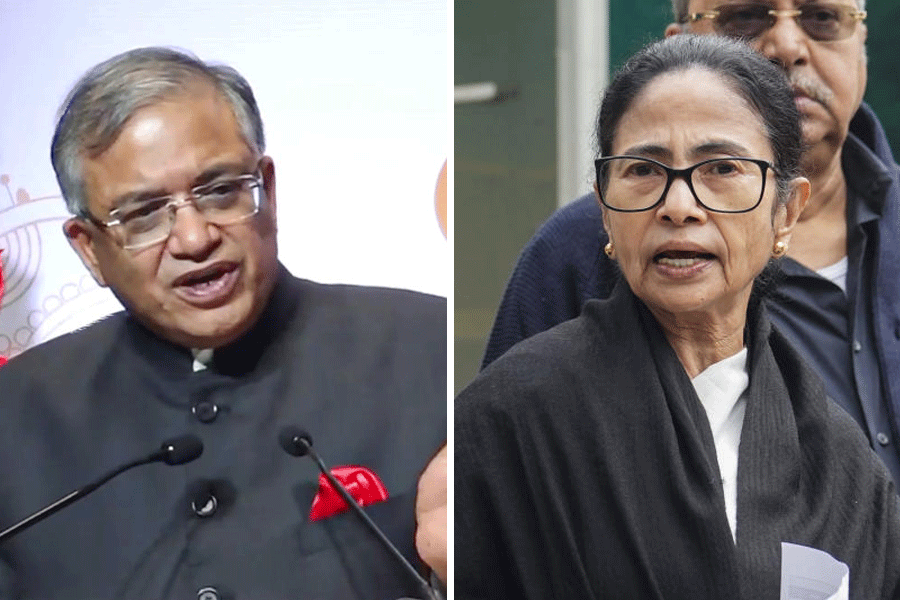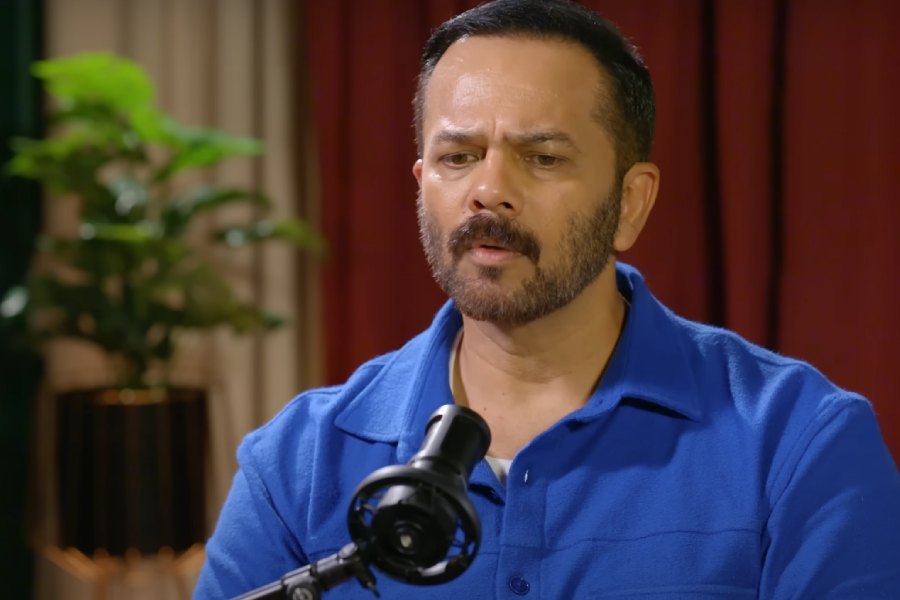Immortality is the right of divinity. Ever since they climbed down from the trees, poor mortals have, understandably, been cut up about the monopoly of the gods on the matter. So humans, in the course of evolution, came up with the idea of erecting statues. These relics cast, literally and figuratively speaking, in stone are a testimony to man’s desire for eternal life. Among the homo sapien, the love for statues in politicians remains unrivalled. Jayanta Naskar, Gosaba’s Trinamul Congress legislator, has merely reaffirmed the devotion of his creed for such figurines by not only having one — but three — statues of himself made but also devoting considerable time in cleaning them.
Mr Naskar and his tribe are known to be vulnerable to the vice of narcissism. But it cannot be denied that Mr Naskar’s daily cleansing ritual is also rich in symbolism about the bitter truths of public life. What better way of getting rid of the dust and grime of political life? There is, evidently, no better way of taking a shot at immortality either. Politics is a dangerous and competitive engagement. People’s representatives are condemned to live under the shadow of fear of getting upstaged by an even more populist rival. The only way, therefore, of creating and nurturing legacies — Mr Naskar has cracked the code — is to have multiple replicas.
But the grand and hideously expensive figurines — the Statue of Unity cost a packet to the exchequer — that dot the Indian landscape need not be perceived as a celebration of an egregious individual whim. Statues, inevitably, are political projects. They may differ in material, scale or ugliness, but each is suffused with the hope of upholding — forever — a set of beliefs and values. And, ironically, therein lies the seeds of destruction. For ideas in the world of free thought are never static. They change with time, they change with the fall of regimes, quickly turning objects of public veneration into subjects of ridicule. Cecil Rhodes got toppled — almost — in Oxford; in the 1960s, India began dismantling the statues of colonial minders; New India has not treated the sons of soil any better, with reports of the defacement of the replicas of the Mahatma and B.R. Ambedkar being quite common. Mr Naskar — he has a few busts to spare — is thus a wise man.
The violence against statues — Mr Naskar may note despairingly — may appear to shorten the after-life of politicians. But history — Mr Naskar can breathe again — is a truly resilient creature. Uprooting a few statues is seldom enough to purge entire epochs that remain etched in memory as well as in the curriculum. Mr Naskar’s statues may not survive in politically restive Gosaba. But his legacy would endure if he, and other politicians, remain committed to the pledge of public service.










